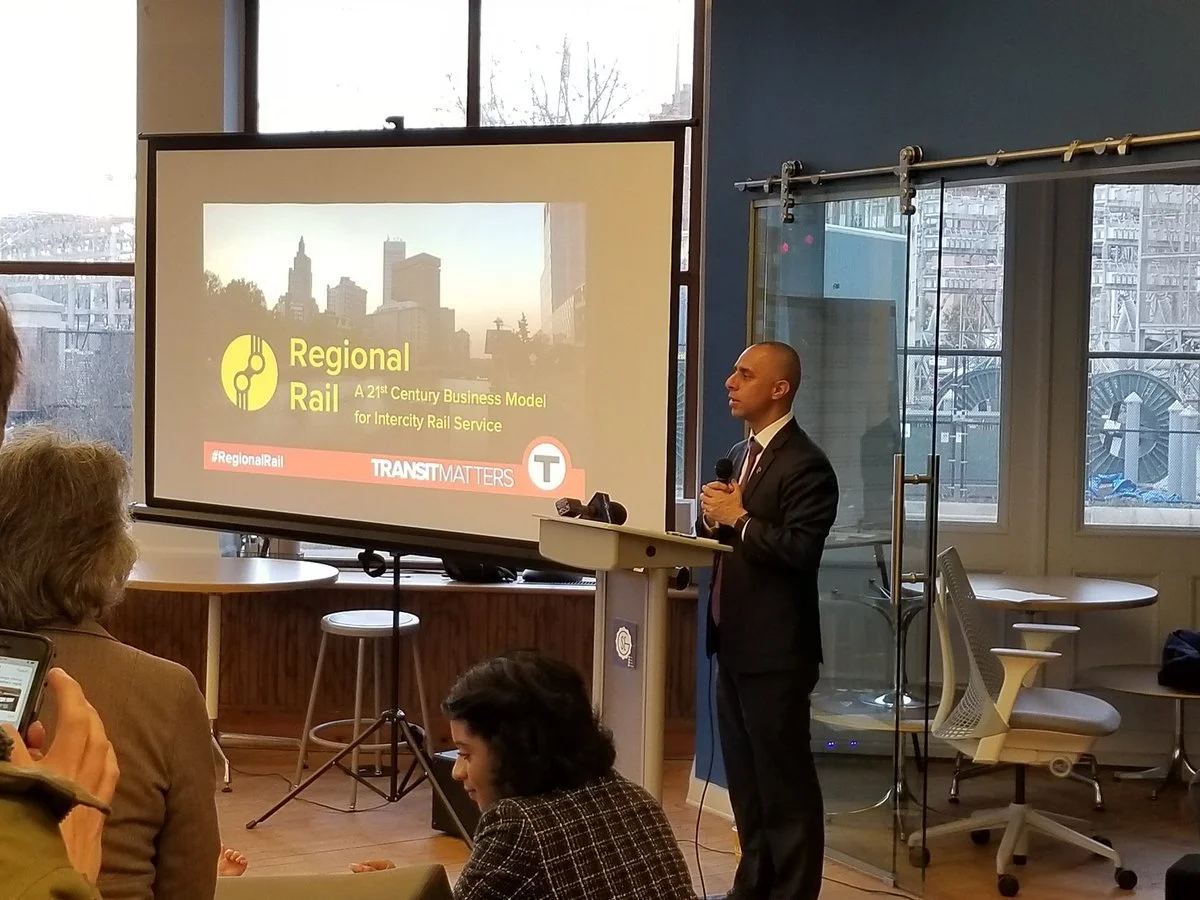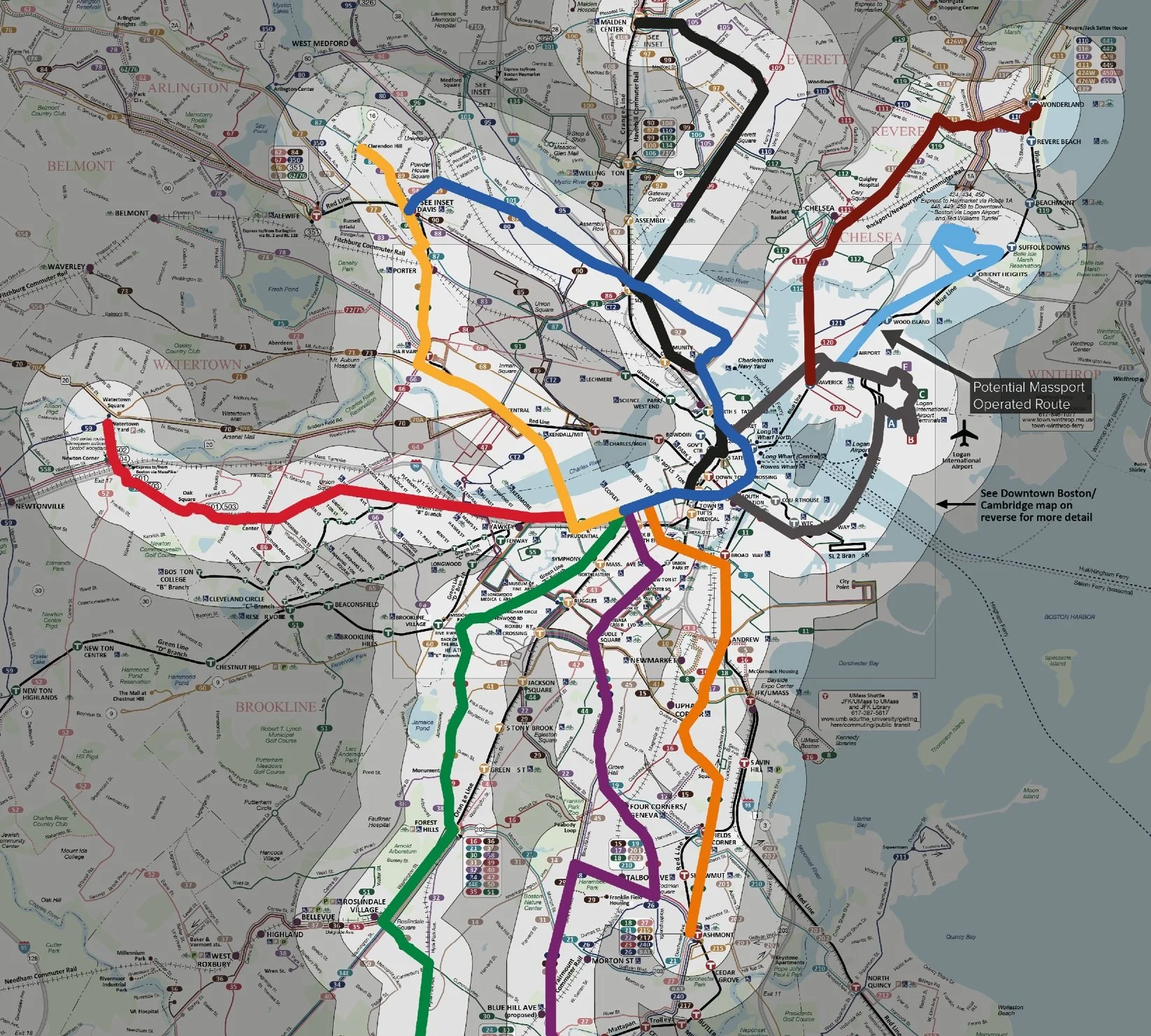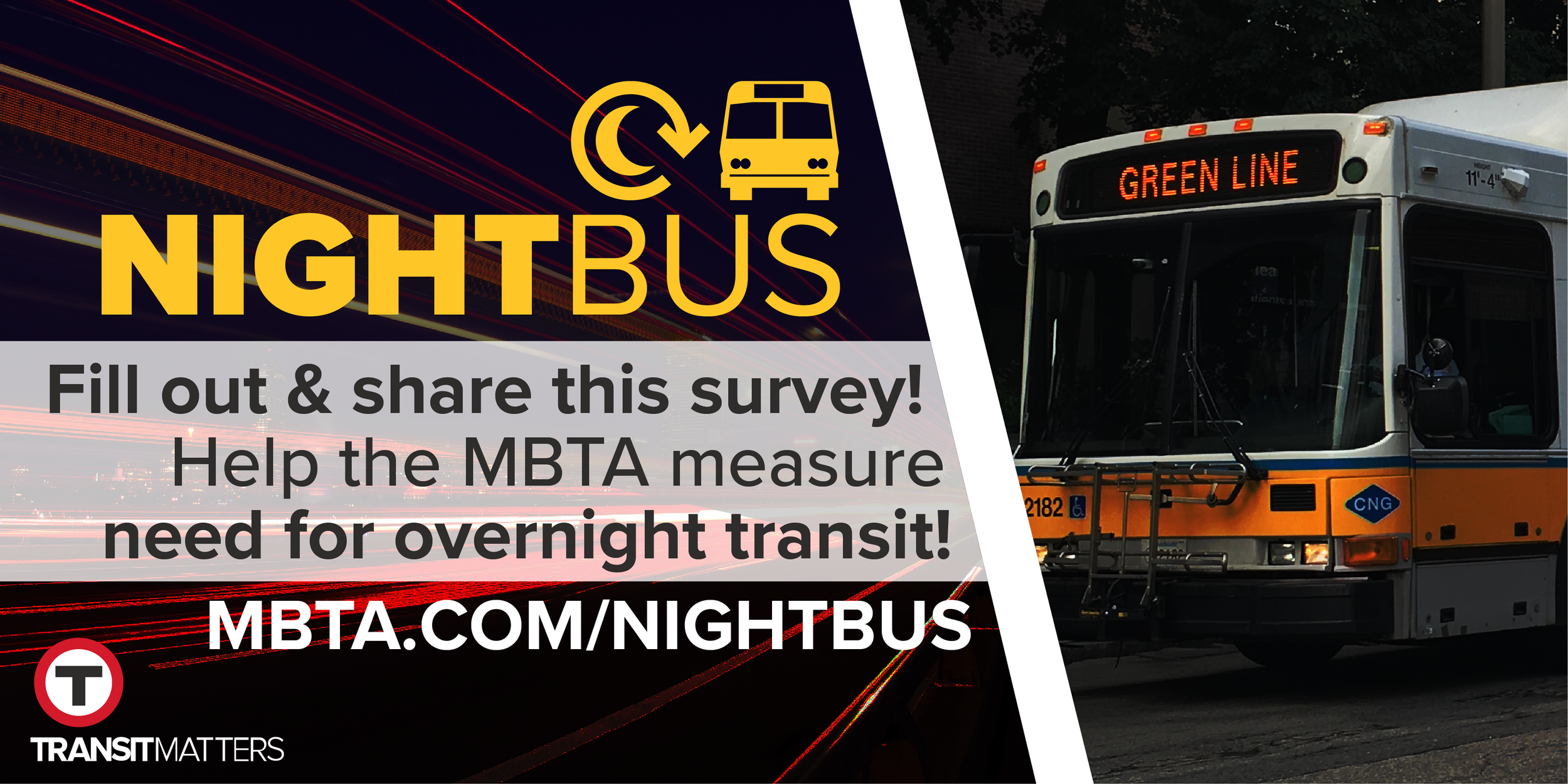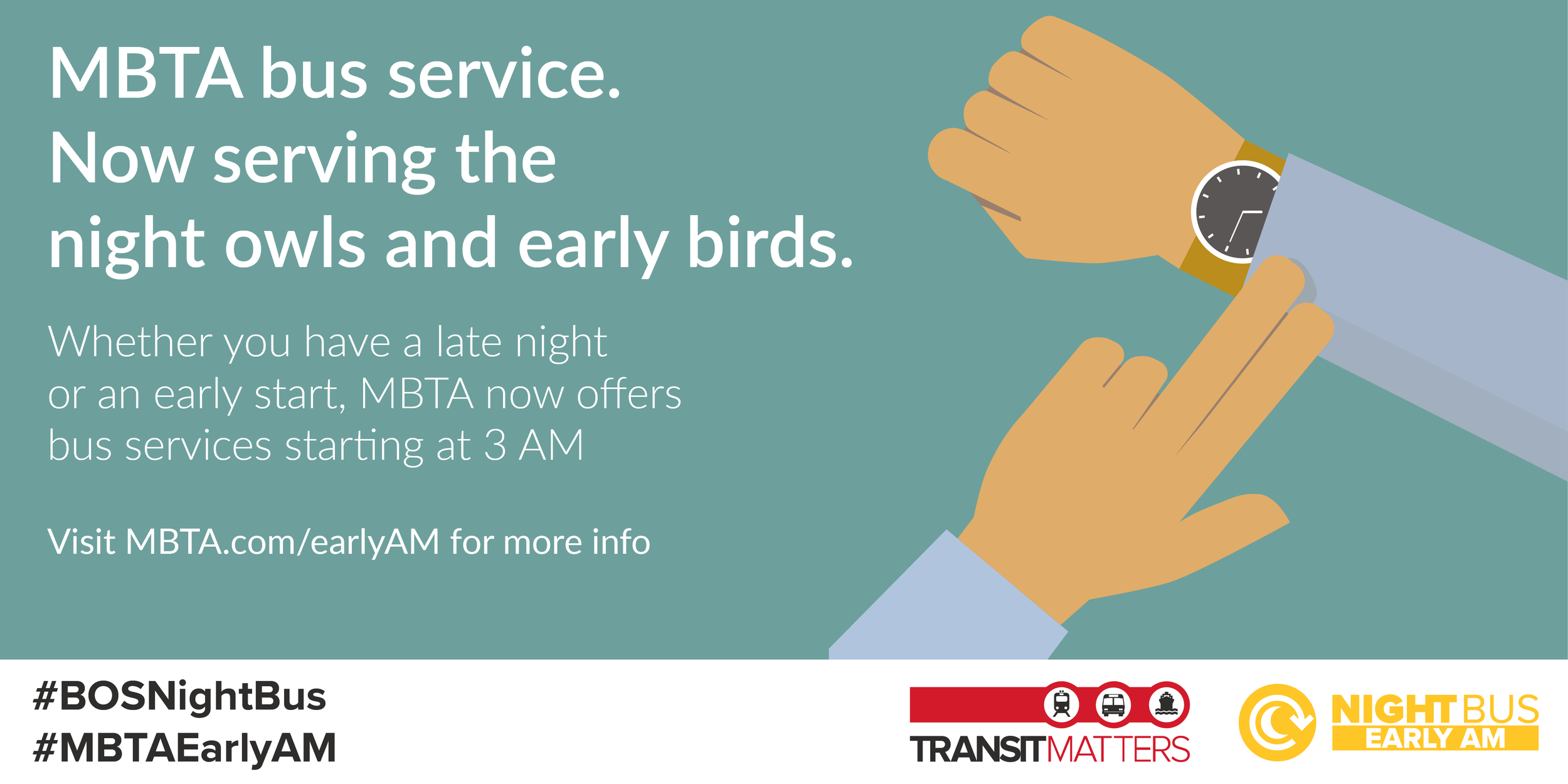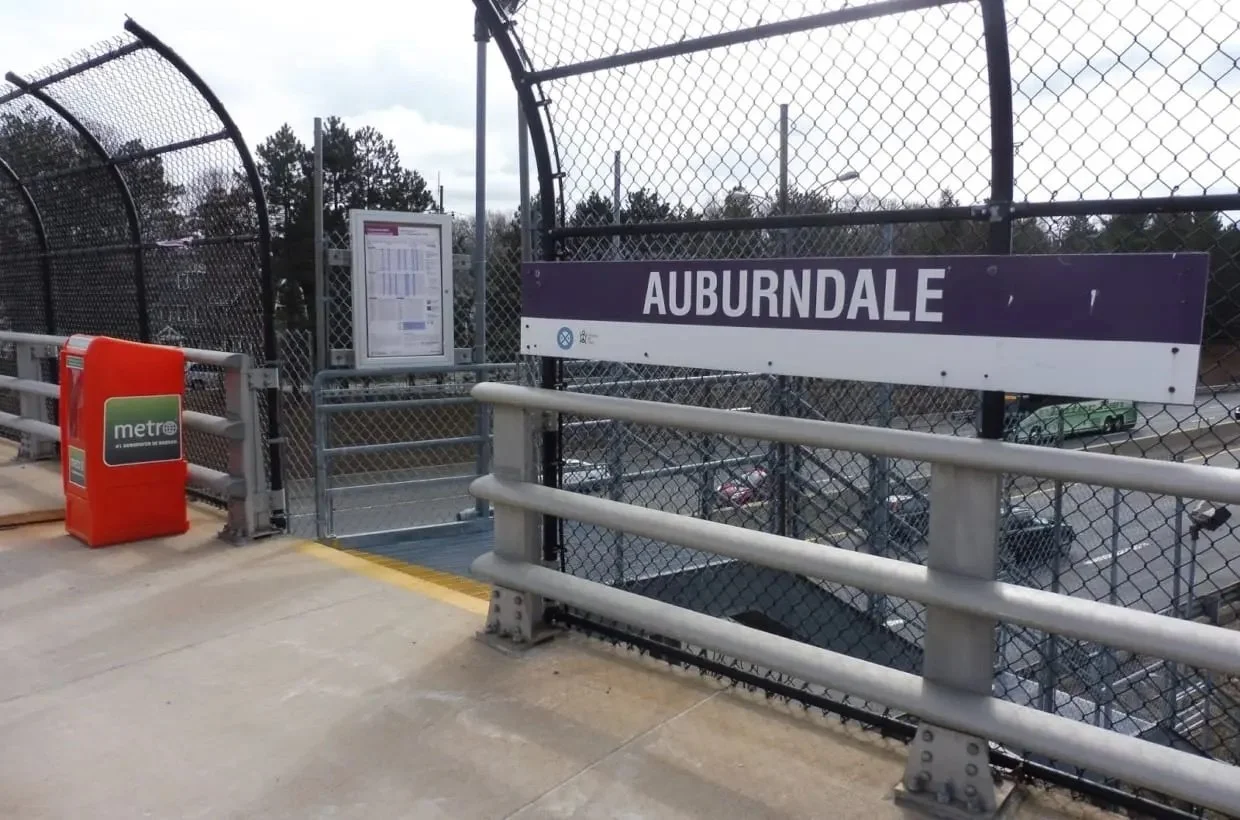
Celebrating 10 Years Of Advocacy: MBTA Board Endorses TransitMatters' Vision For Regional Rail
[The MBTA’s Fiscal and Management Control Board]’s resolutions largely followed the framework and phased approach that we laid out in our reports.
TransitMatters is celebrating 10 years of advocacy! To celebrate, we've been highlighting landmark moments in our history so far. Next up: Our advocacy and evidence-based research that pushed the MBTA to endorse TransitMatters’ vision for Regional Rail.
Members of TransitMatters introduce their plan to electrify the Commuter Rail system and add more frequency to lines (WBUR).
In 2018, the MBTA initiated their Rail Vision project to evaluate the future of the Commuter Rail. The Rail Vision team considered several possible alternatives, from optimizing the current system to a full transformation with 15-minute frequency. In February of the same year, we released Regional Rail for Metropolitan Boston during a live press event to stakeholders, policy makers, and the public. The report received rave reviews from policy makers, community leaders, and most importantly, riders, across the region.
In the spring of 2018, several municipalities openly supported a Regional Rail model, including the City of Newton, which advocated for a Regional Rail approach to rebuilding their three Commuter Rail stations. The Massachusetts Senate also included electrifying the Providence/Stoughton and Fairmount Lines in the state budget. Unfortunately, they ended up stripping it from the budget.
Providence Mayor Jorge Elorza at TransitMatters’ Regional Rail Whistle Stop Tour in 2019.
For the rest of the year, TransitMatters continued to influence dialog around modernizing the Commuter Rail as we worked on our follow up report. We visited communities across the region, presenting our Regional Rail vision, hosting happy hours, and speaking to any organization that wanted to know more about Regional Rail.
In September 2019, we released Regional Rail Proof of Concept! This report focused on how modest changes in both operations and track layout at South Station can have significant benefits to train capacity in the short-term. After releasing Proof of Concept, we worked with community, business, and elected leaders to write op-eds. We also organized a campaign to send hundreds of letters to the MBTA’s Rail Vision team in support of the boldest option for Regional Rail.
In November 2019, the MBTA’s Fiscal and Management Control Board (FMCB) endorsed Commuter Rail electrification to provide all-day, rapid-transit-style Regional Rail service throughout Greater Boston. Their resolutions largely followed the framework and phased approach that we laid out in our reports.
TransitMatters has not let up on our Regional Rail advocacy following the FMCB's endorsement. In 2020, we began releasing our line-by-line analyses, as well as our Regional Rail Phase I plan, and Turning Vision into Reality.
Due to our advocacy, Regional Rail has widespread name recognition! No one talked about Regional Rail or used the phrase in Massachusetts until we did. $61 million new money for Regional Rail has also been included in the in FY2024-2028 CIP, we are a key partner in advocacy coalitions along Phase I corridors, and our vision has been cited in significant articles.
Celebrating 10 Years Of Advocacy: TransitMatters' NightBus Initiative That Pushed the MBTA to Pilot Late-Night Bus Service
Although we did not secure overnight service, NightBus did succeed in providing riders with more early-morning and late-night trips.
TransitMatters is celebrating 10 years of advocacy! For the next 4 weeks, we will be highlighting landmark moments in our history so far. Next up: Our NightBus initiative that pushed the T to pilot early-morning and late-night bus service.
In 2014, the MBTA launched late-night service until 2:30am on Friday and Saturday nights. The T had no ridership goal, but late-night service on weekends served around 16,000 riders a night. By the next year, late-night service ridership had halved and the MBTA's Fiscal and Management Control Board (FMCB) planned to kill the service.
From the start, the MBTA focused on the wrong ridership base when providing late-night service. The T's late-night service was designed to fail: routes did not connect nor form a comprehensive network, late-night demand was not restudied to see how it differed from daytime coverage, the coverage area omitted key low-income and Environmental Justice communities, and promises for additional outreach and marketing of late-night service were not fulfilled.
Without an equity analysis, the T officially cut late-night service in February 2016. According to data collected by the T in 2015, 54% of late-night bus riders were minorities and 64% were low-income.
NightBus concept route map.
In March 2016, we outlined a new late-night service in the Commonwealth Beacon called NightBus. In our initial proposal, NightBus consisted of: overnight service, 7 days a week, the use of current bus stops and corridors, and a pulse point in Copley Square. In September 2016, we pitched NightBus to the FMCB and they directed MBTA staff to survey for demand and interest in overnight transit service! The next month, we regularly met with the T and the Cities of Boston and Cambridge to draft survey questions.
Survey outreach.
The MBTA, the Cities of Boston and Cambridge, and TransitMatters volunteers spent the end of 2016 distributing and sharing the survey. The Cities of Boston and Cambridge also surveyed employers and collected other sources of information about existing overnight travel in the region.
From March to July of 2017, we worked with the T and the Cities of Boston, Cambridge, and Somerville to draft a pilot proposal for overnight service. In July, we presented the proposal to the FMCB. In August they approved Phase 1 of overnight service, which extended early-morning bus routes and in October, they voted to forward Phase 2 of overnight bus service, which included late-night service!
In January 2018, the T began looking for a vendor to provide vehicles and drivers for the singular overnight bus route between Mattapan, Downtown, East Boston, Chelsea, and Revere. In June, the FMCB voted to pilot late-night buses on key routes starting in September. The pilot included extended service until 2:00am, an added trip at the "end" of the night, and improved frequency between 10:00pm and 12:30am to alleviate crowding.
TransitMatters helped the T promote early-morning and late-night service on social media.
The FMCB deemed Phase 1 successful in December and, in April 2019, early-morning service became permanent! We planned to work with the FMCB in 2019 to make overnight service permanent, but in June, the FCMB voted to end the pilot, citing low ridership.
Although we did not secure overnight service, NightBus did succeed in providing riders with more early-morning and late-night trips. TransitMatters and our partners also changed the conversation about late-night transit from serving “drunk college kids” to serving hospitality and third-shift workers.
Our work on NightBus also produced data that is still proving helpful in illuminating how people travel in the overnight period and TransitMatters' collaboration with the municipal, private, and nonprofit sector was a model for the future! For the future of NightBus... the City of Boston is exploring late-night transit options as a part of a study on local transit needs beyond T service. Stay tuned…
Celebrating 10 Years Of Advocacy: TransitMatters Exposes MBTA’s Nearly $7M Mistake With Auburndale Station
The T was not only about to continue neglecting Newton riders, it was about to degrade service for riders on the entire Framingham/Worcester Line.
For the next five weeks, we will be highlighting landmark moments in our history so far. Next up: Our exposure of the T’s nearly $7 million mistake with Auburndale Station.
Photo credit: “Auburndale station (MBTA)” Wikipedia page
All of Newton’s Commuter Rail stations—Auburndale, West Newton, and Newtonville—currently only have single-side, low platforms. Before the 1960s, Auburndale had a station designed by H.H. Richardson and landscaped by Frederick Law Olmsted (pictured right). In 1961, the state demolished the station and two out of four tracks for the MassPike extension into Boston. On top of being inaccessible, having a platform on just one side of the tracks means it is not possible to serve passengers in both directions throughout the day. For years, the Commuter Rail has neglected riders by leaving large gaps in service to Newton.
Responding to advocacy for an accessible Commuter Rail station in Newton from residents and Representative Kay Khan, the MBTA began redesigning Auburndale Station in the late 2000s. The T initially redesigned the station with mini-high platforms due to wide freight rights, but this did not impress the community. The T went back to the drawing board, and nothing public-facing happened with Auburndale Station for about five years.
Then in 2016, there were rumors that the MBTA would finally do something with the station. In February 2017, the T presented the final Auburndale Station design to the community. The T's new plan continued to have just one platform, but now on the opposite track. However, the T didn't plan to move other single-platform stations in Newton to the opposite track. Consequently, the MBTA planned to spend 58% of the total project cost on new switching equipment for trains to swap tracks between stations. To make matters worse, the T failed to confirm whether it was possible to maintain the Framingham/Worcester Line's schedule with trains swapping tracks in Newton.
Photo credit: Miles in Transit
The T was not only about to continue neglecting Newton riders, it was about to degrade service for riders on the entire Framingham/Worcester Line. Two TransitMatters members called attention to this issue at a public meeting for the final design. The T said it hadn't checked with railroad ops.
After a few months of TransitMatters raising the alarm about Auburndale, then-Secretary of Transportation Stephanie Pollack scrapped the design and sent the MBTA back to the drawing board in May 2017.
In 2019, the T revealed their new plan to build accessible platforms on the opposite track at all three Newton Commuter Rail stations and expected the final design in the spring of 2022. The MBTA's newest design would still cause large gaps in service Commuter Rail for Newton. However, in 2021, the T changed course and committed to building two-platform, accessible stations at all three Newton Commuter Rail stations!
The MBTA's Accessibility Initiatives report from June 2023 reported that Auburndale, West Newton, and Newtonville Stations are approaching 75% design. According to this report, the MBTA should complete the final design by February 2024. However, the MBTA has still not identified a source of funding for constructing the stations. The T will not be able to afford three full station rebuilds under the current capital funding constraints. This is one of the many reasons why the T needs more funding and a dedicated funding source.
Banner Photo Credit: Leslie Anderson/THE BOSTON GLOBE
Categories
- Children (1)
- Diversions (1)
- Olympics (1)
- MAPC (2)
- Red–Blue Connector (2)
- Urban Design (3)
- Bus (4)
- Fares (4)
- Late Night Service (4)
- MBTA ROC (4)
- Silver Line (4)
- Snow (5)
- Blue Line (8)
- Emergency (8)
- Orange Line (8)
- Public Comment (8)
- Maintenance (9)
- Operations (9)
- Signage (9)
- Fare Collection (10)
- Labs (11)
- Safety (11)
- Planning (12)
- Communication (14)
- MBCR (14)
- MassDOT (14)
- Green Line (16)
- History & Culture (16)
- Red Line (18)
- MBTA Bus (21)
- Commuter Rail (24)
- Advocacy (26)
- Capital Construction (28)
- Politics (30)
- Podcast (35)
- News (38)
- Media (40)
- Funding (42)
- Statements (50)
- MBTA (57)



